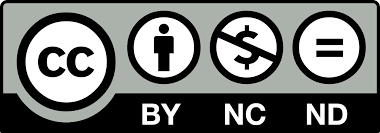Selected Benefits and Threats Arising from Internet use by Households and Enterprises in Poland with Respect to the COVID-19 Pandemic
Roman Kisiel
Faculty of Economic Sciences, University of Warmia and Mazury in Olsztynhttps://orcid.org/0000-0002-3282-1378
Greta Woźnialis
Student of the Faculty of Economic Sciences, University of Warmia and Mazury in OlsztynAbstract
The internet has revolutionised the world over the past half of a century, and the COVID-19 pandemic has contributed to an increase in its importance. Although the global network brings with it more advantages than disadvantages, its existence also causes certain threats which have an impact on the life of Polish households and operations of Polish enterprises. This paper is theoretical and empirical in nature. Its aim is to explore the relationship between the internet and the COVID-19 pandemic, i.e. the time household members spend online. The impact of the two factors on survival in the market was examined in the case of enterprises. Moreover, the subjectively most important benefits and threats arising from the global network consumption in the opinion of the business entities mentioned above were illustrated. According to the respondents, facilitating communication is the main advantage of the internet (33.33%), whereas the spreading of hate on the internet is the major threat associated with its use (24.17%). The main benefit derived from the global network resources by enterprises is the possibility of obtaining raw materials from the most profitable sources (28.40%), whereas the major threat identified by them is that a negative opinion published on the internet can weaken the financial standing of a company or even make it disappear from the market (55.56%). Nearly 60% of household members found themselves spending more time online during the COVID-19 pandemic. Nearly 94% of the entrepreneurs who use the internet in running their businesses admitted that it helped them to keep their business in the market during the pandemic.
Keywords:
Polish households, Polish enterprises, internet, impact of COVID-19 pandemicReferences
Apanowicz, J. (2002). Metodologia ogólna. Gdynia: Wydawnictwo Diecezji Pelplińskiej „Bernardinum”. COVID-19 Business Pulse Survey – Polska. (2020). World Bank Group & PARP. Retrieved from https://www.parp.gov.pl/component/publications/publication/covid-19-business-pulse-survey- Google Scholar
-polska (18.05.2021).
Crossref
Google Scholar
Driel, L. van, & Dumitrica, D. (2021). Selling brands Chile staying „Authentic”: The professionalization of Instagram influencers. Convergence – The International Journal of Research into New Media Technologies, 27(1), 66-84. https://doi.org/10.1177/1354856520902136.
Crossref
Google Scholar
Felipa, P.B. (2017). Marketing + internet = e-commerce: oportunidades y desafíos. Revista Finanzas y Politica Economica, 9(1), 41-56. http://dx.doi.org/10.14718/revfinanzpolitecon.2017.9.1.3.
Crossref
Google Scholar
Frąckiewicz, E. (2006). Marketing internetowy. Warszawa: Wydawnictwo Naukowe PWN. Google Scholar
Kisiel, P. (2016). Millenialsi – nowy uczestnik życia społecznego? Studia Socialia Cracoviensia, 8(1), 83-94. http://dx.doi.org/10.15633/ssc.1876.
Crossref
Google Scholar
Klepacki, B. (2021). Kierunki oddziaływania pandemii Covid-19 na społeczną i ekonomiczną sytuację kraju z uwzględnieniem logistyki. In T. Rokicki (Ed.). Wybrane zagadnienia logistyki – poziom ogólny, transport, dystrybucja, łańcuchy dostaw, logistyka miejska. Warszawa: SGGW. Google Scholar
Kłos, A., & Szura, J. (2013). Szkolenia jako forma aktywizacji zawodowej bezrobotnych na przykładzie Powiatowego Urzędu Pracy w Jarosławiu. Nierówności Społeczne a Wzrost Gospodarczy, 34, 218-234. Retrieved from http://cejsh.icm.edu.pl/cejsh/element/bwmeta1.element.desklight- Google Scholar
-ea9c39a6-beb4-4712-8e23-43412842fb3d (22.05.2021). Google Scholar
Królewski, J., & Sala, K. (Eds.). (2016). E-marketing. Współczesne trendy. Pakiet startowy. Warszawa: Wydawnictwo Naukowe PWN. Google Scholar
Leiva, R., & Kimber, D. (2020). Revisiting Consumer-Responses Models: Are Suitable for Post-Millennials? Communication & Society, 33(4), 33-45. https://doi.org/10.15581/003.33.4.33-45.
Crossref
Google Scholar
Łysik, Ł., & Machura, P. (2014). Rola i znaczenie technologii mobilnych w codziennym życiu człowieka XXI wieku. Media i Społeczeństwo. Medioznawstwo, komunikologia, semiologia, socjologia mediów, 4, 15-26. Retrieved from https://www.wir.ue.wroc.pl/info/article/WUT296e- Google Scholar
e0dd14886a9831dc7c4b61447/Rola+oraz+znaczenie+technologii+mobilnych+w+codziennym+%C5%BCyciu+cz%C5%82owieka+XXI+wieku (18.05.2021). Google Scholar
Mazurek, G. (Eds.). (2018). E-marketing. Planowanie, narzędzia, praktyka. Warszawa: Wydawnictwo POLTEXT. Google Scholar
Milewski, R., & Kwiatkowski, E. (Eds.). (2018). Podstawy ekonomii. Warszawa: Wydawnictwo Naukowe PWN. Google Scholar
Nowa rzeczywistość: konsument w dobie COVID-19. Jak zmieniły się zwyczaje zakupowe Polaków w czasie koronawirusa? (2020). KPMG. Retrieved from https://home.kpmg/pl/pl/home/insights/2020/09/raport-nowa-rzeczywistosc-konsument-w-dobie-covid-19-jak-zmienily-siezwyczaje-zakupowe-polakow-w-czasie-koronawirusa.html (15.05.2021). Google Scholar
Panasiuk, K., & Panasiuk, B. (2017). Uzależnienie od komputera i Internetu – wybrane problemy. Colloquium Wydziału Nauk Humanistycznych i Społecznych AMW, 1, 59-84. Retrieved from http://yadda.icm.edu.pl/yadda/element/bwmeta1.element.desklight-fb7cdc89-3972-4de0-ac3b- Google Scholar
ebc3e524116 (22.05.2021).
Crossref
Google Scholar
Rozkrut, D. (2017). Zjawiska i procesy kształtujące rozwój społeczeństwa informacyjnego i gospodarki Google Scholar
cyfrowej w Polsce. In K. Flaga-Gieruszyńska, J. Gołaczyński, & D. Szostek (Ed.). E-obywatel E-sprawiedliwość. E-usługi. Warszawa: Wydawnictwo C.H. Beck. Google Scholar
Rymarczyk, J. (2021). The impact of industrial resolution 4.0 on international trade. Entrepreneurial Business and Economics Review, 9(1), 105-117. https://doi.org/10.15678/EBER.2021.090107.
Crossref
Google Scholar
Społeczeństwo informacyjne w Polsce w 2020 r. (2020). Warszawa: Główny Urząd Statystyczny. Retrieved from https://stat.gov.pl/obszary-tematyczne/nauka-i-technika-spoleczenstwo-informacyjne/spoleczenstwo-informacyjne/spoleczenstwo-informacyjne-w-polsce-w-2020-roku,1,14.html (14.05.2021). Google Scholar
Społeczeństwo informacyjne w Polsce. Wyniki badań statystycznych z lat 2004-2006. (2008). Warszawa: Główny Urząd Statystyczny. Retrieved from https://szczecin.stat.gov.pl/publikacjei-foldery/nauka-technika/spoleczenstwo-informacyjne-w-polsce-wyniki-badan-statystycznych-zlat-2004-2006,4,3.html?contrast=black-yellow (14.05.2021). Google Scholar
Stroiko, T., Nazarov, L., & Danik, N. (2021). Transformation of economic processes on the basis of digitalisation. Baltic Journal of Economic Studies, 7(1), 102-106. https://doi.org/10.30525/2256-
Crossref
Google Scholar
/2021-7-1-102-106. Google Scholar
Tomin, V.V., Erofeeva, N.E., Borzova, T.V., Lisitzina, T.B., Rubanik, V.E., Aliyev, H.K., & Shuaipova, P.G. (2020). Internet Media as Component of Information and Communication Environment in Electoral Process: Features and Tools. Online Journal of Communications and Media Technologies, 10(3), 1-7, e202011. https://doi.org/10.29333/ojcmt/7932.
Crossref
Google Scholar
Woronowicz, B.T. (2009). Uzależnienia. Geneza, terapia, powrót do zdrowia. Warszawa: Wyd. Edukacyjne PARPAMEDIA. Google Scholar
Faculty of Economic Sciences, University of Warmia and Mazury in Olsztyn
https://orcid.org/0000-0002-3282-1378
Student of the Faculty of Economic Sciences, University of Warmia and Mazury in Olsztyn
License

This work is licensed under a Creative Commons Attribution-NonCommercial-NoDerivatives 4.0 International License.
An Author declares that his paper has not been published before (under the same or another title, or is a part of another publication) and does not infringe copyrights of other persons**. At the same time, the Author transfers to the Publisher the exclusive right to publish and to circulate this work in print in the form of a non-serial journal publication and in a form of an electronic publication.
The journal is available on Creative Common license CC-BY-NC-ND






